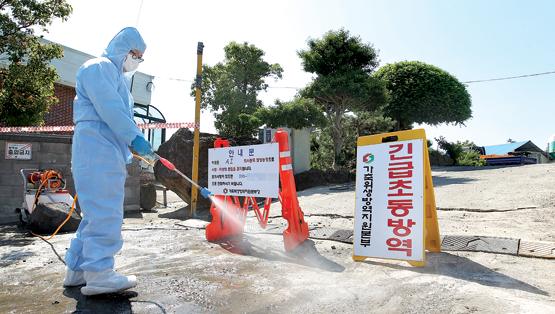
The South Korean government has announced a 'Mid-to-Long-Term Livestock Disease Control Development Plan,' shifting the livestock disease control system from a government-led model to one centered on local governments and the private sector. The plan also includes the expansion of smart prevention measures utilizing big data and artificial intelligence (AI).
Key Highlights:
Establishment of a Local-Led Autonomous Prevention System: Local governments will develop customized prevention management plans tailored to regional conditions, with government support.
Strengthening regulations for farms violating prevention rules and providing incentives for those enhancing voluntary prevention.
Creation of a Private Industry Ecosystem: Promoting specialized disease control and hygiene management businesses, such as farm disinfection and pest control, and introducing a certification system for excellent consultants.
Expansion of AI-Driven Smart Prevention: Utilizing big data analysis to identify high-risk areas and farms, and efficiently allocating prevention resources.
Expanding AI risk assessment to African swine fever and aiming to improve assessment accuracy to 85% by 2029.
Proactive Response to Emerging Infectious Diseases: Establishing preparedness systems for emerging infectious diseases such as Lumpy skin disease and African horse sickness.
Strengthening vector surveillance, stockpiling vaccines, and preparing emergency action guidelines.
Enhanced Management of Zoonotic Diseases: Strengthening testing for avian influenza infection in mammals and preparing emergency action guidelines.
Streamlining Human Resource Management and Strengthening Field-Oriented R&D.
The Minister of Agriculture, Food and Rural Affairs stated, "The government will diligently implement this plan to minimize livestock disease outbreaks and damage, and calls for active participation from the private sector."
[Copyright (c) Global Economic Times. All Rights Reserved.]






























